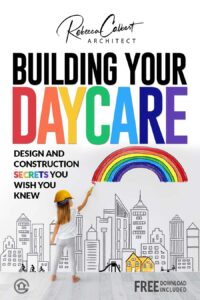Have you ever wondered what it takes for a childcare facility to stand out and attract young families in today’s competitive landscape? With the ever-changing demands of modern parents, childcare centers need to offer more than just a basic service to truly thrive. This article dives into the essential elements facilities should focus on to appeal to young families. By understanding these key factors, you can help your childcare facility provide an environment that is nurturing, safe, and engaging for the children in your care and their families.

Understanding Today’s Young Families
Embracing Diverse Family Structures
Modern families can look very different compared to decades ago. From single-parent households to multi-generational accommodations, understanding the various dynamics will help you create approaches that appeal to all family types. It’s essential to recognize these differences and adapt your services to ensure they cater to diverse needs.
Meeting the Expectations of Millennial Parents
Millennial parents often prioritize different things than previous generations. They may look for facilities that offer flexible schedules, digital updates on their child’s progress, and environments that emphasize personalized attention. These parents value unique experiences for their children, making it essential to understand their specific needs and cater to them effectively.
Developing a Strong Educational Framework
Implementing an Age-Appropriate Curriculum
An effective childcare facility must have an educationally enriching curriculum. Although play is vital, incorporating structured learning activities that are tailored to each age group enhances developmental milestones. Ensuring that your facility offers an evolving curriculum that grows with the child can make a significant difference for young families in deciding where to enroll.
Encouraging Cognitive and Emotional Development
Creating an environment that supports cognitive and emotional development is crucial. Caregivers should be trained to foster critical thinking through play-based activities while simultaneously developing emotional intelligence. Skills like empathy, understanding emotions, and problem-solving are crucial in a child’s early years—skills that many families place a high priority on.
Focusing on STEM and Creative Arts
Families today often seek a balance between traditional academics and creative exploration. By incorporating STEM (Science, Technology, Engineering, and Math) along with the arts, your facility can provide a well-rounded program that nurtures logical thinking and creativity. Not only does this combination prepare children for school, but it also instills a love for learning.

Prioritizing Safety and Health Protocols
Establishing Robust Safety Measures
Safety is a non-negotiable aspect that every childcare facility must emphasize. This includes everything from secure entry and exit points, childproofed environments, to meticulously trained staff in emergency protocols. Parents need reassurance that their children are safe, which builds trust and can differentiate your center from others.
Adopting Comprehensive Health Practices
With growing concerns over health, especially in the wake of global pandemics, parents are keen on facilities that prioritize hygiene and health practices. This could range from regular sanitization routines to having a comprehensive policy on managing illnesses. Being transparent about these practices and involving parents can enhance comfort levels and trust.
Offering Nutritious Meal Programs
A well-rounded meal program is crucial for the growth and development of children. Facilities that offer nutritious, appealing, and balanced meals stand out to health-conscious families. Involve a nutritionist to plan meals and regularly update menus to reflect current health guidelines, ensuring children receive the best nourishment.
Enhancing Parental Engagement
Communication is Key
Open lines of communication are fundamental in building a successful relationship with families. Offering regular feedback, and updates, and being available to address concerns helps build an open and trusting relationship. Apps and online platforms can facilitate real-time updates, making parents feel involved in their child’s daily experiences.
Creating Opportunities for Parent Involvement
Encouraging parents to be a part of the childcare community can strengthen bonds. Creating opportunities such as parenting workshops, volunteer days, or special events where parents can engage with staff and other families fosters a sense of community and partnership.
Providing Resources and Support
Beyond just caring for their children, helping parents navigate the challenges of parenting can be a huge plus. Offering resources, like educational materials or parenting seminars, provides additional value. Supporting parents means they see your facility as a partner in their parenting journey rather than just a service provider.

Investing in Technology and Infrastructure
Keeping Up with Technological Advances
Incorporating technology into learning and communication is increasingly important. Technology can enhance the educational experience and streamline communication between staff and parents. Investing in child-safe tech and using digital tools for learning can give your facility an edge thanks to the value they add.
Ensuring a Modern and Inviting Infrastructure
A facility’s physical environment majorly impacts its attractiveness to families. Designing spaces that are safe, inviting, and stimulating makes a significant difference. Ensure there are areas that cater to different activities—quiet corners, spaces for group play, and outdoor playgrounds.
Training and Retaining Quality Staff
Hiring Passionate and Qualified Staff
Your staff is often the face of your facility, making it crucial to hire individuals who are not only certified but passionate about childcare. They should be skilled in both educational techniques and interpersonal communication, ensuring they relate well to both children and parents.
Providing Ongoing Training and Development
The childcare industry is dynamic, and ongoing development is necessary to keep up with best practices. Offering staff opportunities to enhance their skills not only improves service quality but also raises morale and job satisfaction.
One of the most effective ways to achieve this is by investing in your staff members’ career growth. While you may not always be able to offer the highest salaries, supporting continuous learning and skill building can be just as meaningful. Setting aside dedicated professional development days gives your team a chance to focus on their own growth—learning new techniques, sharing experiences with colleagues, and staying current with the latest trends in early education.
These training opportunities not only help your staff feel valued, but also foster a strong learning culture within your center. Regular professional development ensures your team remains engaged and qualified, leading to higher staff retention and, ultimately, a stronger reputation for your facility.
What Happens During Professional Development Days?
Professional development days are valuable opportunities for teachers to expand their expertise and connect with their peers. These dedicated days often include focused training sessions on the latest educational approaches, collaborative workshops where staff can share experiences and ideas, and team-building exercises designed to strengthen relationships within the group. There’s also time set aside for personal reflection and goal setting, allowing educators to chart their own growth and tailor their learning to the needs of their classroom. Ultimately, these activities ensure that teachers stay inspired, informed, and well-prepared to provide exceptional care and learning experiences for children.
Exploring Resources for Staff Training and Professional Development
While state regulations often set a baseline for required staff training, the most successful childcare centers seek out opportunities to go far beyond the minimum. Nurturing your team’s expertise not only elevates the quality of care but also fosters a culture of curiosity and growth in your center.
To keep your staff inspired and informed, consider a broad mix of professional development options, such as:
- Accredited Group Workshops: National organizations like the National Association for the Education of Young Children (NAEYC) and Child Care Education Institute (CCEI) offer reputable group training sessions covering the latest in early learning philosophies and practices.
- Webinars and Online Seminars: Regularly tune in to virtual sessions on innovative teaching strategies, classroom management, and child development updates, many of which are available through well-known educational bodies.
- Health and Safety Certifications: Ensure your staff stays sharp with up-to-date health, safety, and emergency response training—essential for both daily operations and unforeseen situations.
- Professional Book Studies: Encourage educators to explore recent publications in early childhood education, followed by group discussions to reflect and share insights.
- Onsite Expert-Led Trainings: Invite local professionals—such as child psychologists, developmental therapists, or nutritionists—to share their expertise and lead interactive workshops at your facility.
Prioritizing ongoing learning and encouraging your staff to continually expand their skills will set your center apart as a leader in quality early childhood care.
Establishing a Positive Work Culture
Fostering a supportive work environment contributes to job satisfaction, which in turn reflects in the care children receive. A positive team culture ensures staff retention and continuity of care, which reassures parents of the long-term stability offered by your facility.
Practical Team-Building Ideas for Childcare Staff
Building a strong, collaborative team isn’t just good for morale—it’s essential for delivering quality care. Consider these engaging activities that can help your staff connect and grow as a team:
- Stress-Buster Sharing Circle: Invite everyone to share their favorite strategies for managing stressful moments on the job. You’ll pick up new ideas and foster empathy among your team.
- Silent Line-Up Challenge: Without speaking, ask your staff to arrange themselves in order of their birthdays. It’s a fun exercise in nonverbal communication and teamwork.
- Creative Collaboration Games: Bring out the markers and paper for a round of Pictionary, or task your team with building the tallest balloon tower using just balloons and tape. These quick games encourage creativity and laughter, helping break down barriers.
Simple, playful activities like these can be woven into team meetings or professional development days, energizing your staff and reinforcing the sense of community that’s so valuable in a childcare environment.
Cultivating a Resilient Business Model
Understanding Economic Trends
Understanding the economic factors that affect young families can help your business adapt to their needs. Providing flexible payment options, for instance, can appeal to families who may be economically stretched but desire quality childcare.
Incorporating Feedback for Continuous Improvement
Actively seek feedback from families to consistently improve your services. Utilize surveys, suggestion boxes, and parent meetings to gather insights. Responding to feedback and making necessary improvements displays commitment and can lead to higher satisfaction and retention rates.
Building a Strong Community Presence
Engage with your local community to build a reputation that attracts families. Whether you’re participating in local events, contributing to community projects, or collaborating with local businesses, the stronger your presence, the more appealing your facility becomes to families in your region.
Adapting to Changing Social Dynamics
Incorporating Cultural Sensitivity
Being culturally sensitive is key in setting families at ease. Ensure your facility recognizes and respects differing cultural backgrounds. Celebrate diverse traditions and holidays to foster an inclusive atmosphere.
Addressing Special Needs Inclusivity
Many families seek childcare facilities that understand and cater to children with special needs. Staff should be trained in dealing with disabilities, and your facility should be equipped to accommodate such needs.
Encouraging Diverse Social Interactions
Childcare facilities should also promote social interactions among children of different backgrounds. This practice not only prepares children to live in a diverse world but also attracts families pursuing these values in early education.
Summary
Creating a standout childcare facility involves understanding the diverse needs of modern families and adapting to those needs effectively. By focusing on safety, education, communication, technology, and cultural sensitivity, you can ensure your facility competes strongly in the market. Remember, building a successful childcare center is about creating a nurturing, secure, and engaging environment that families feel confident and excited about being a part of.

